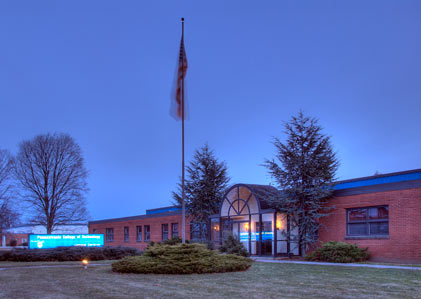Accredited HVAC Schools in Aurora, IL
Students choosing to attend a school should ensure that it is accredited. Accreditation is the process by which an independent agency has evaluated the quality of the curriculum and instructors of the institution. HVAC programs are accredited by HVAC Excellence and the Partnership for Air-Conditioning, Heating, Refrigeration Accreditation (PAHRA).
HVAC Excellence has accredited Midwest Technical Institute, Springfield, and Waubonsee Community College, Sugar Grove. PAHRA has accredited Illinois schools as follows:
- College of Lake County, Grayslake
- Elgin Community College, Elgin
- Illinois Central College, East Peoria
- John A. Logan College, Carterville
- Oakton Community College, Des Plaines
Additional schools in the profiles below have received accreditation from other credible agencies.
College of DuPage
The college offers five certificate programs and three HVAC/R degree programs as follows:
- Building automated systems certificate – prepares students for careers that merge traditional HVAC/R knowledge with computer and IT skills – 37 credit-hours
- Energy audit and analysis certificate – designed for HVAC/R and building inspector contractors – 10 credit-hours
- Entry level HVAC/R certificate – prepares students for entry-level positions in the HVAC/R industry – 13 credit-hours
- Service technician certificate – prepares students for entry-level positions in the HVAC/R industry – 33 credit-hours
- Stationary operator certificate – prepares students for commercial and industrial facilities management – 31 credit-hours
- HVAC/R service technician associate of science degree – 64 to 68 credit-hours
- HVAC/R contractor associate of science degree – 64 to 68 credit-hours
- Facility maintenance mechanic associate of science degree – 64 to 68 credit-hours
Each certificate program, except the energy audit and analysis program, begins with coursework that includes safety, materials, and equipment; refrigeration principles and refrigerant certification; electricity and controls; and heating principles. Students in the entry-level HVAC/R certificate program complete only the above coursework. The energy audit and analysis certificate curriculum includes energy audits/economics, load calculations and duct design, and HVAC contracting.
Students in the remaining certificate programs add coursework relevant to the certificate title described below.
The curriculum for the building automated systems (BAS) certificate adds commercial air conditioning; automation control devices; object-oriented programming; and building commissioning, system solutions, and system integration. The service technician certificate program curriculum adds introduction to sheet metal; residential and light commercial forced-air heating; hydronic heating; residential and commercial air conditioning; installation; and troubleshooting systems. Students in the stationary operator add hydronic heating; central heating and cooling plants; commercial air conditioning; and mechanical systems to their curriculum.
Students enrolled in the degree programs complete the coursework described in the certificate programs. They also must complete 18 to 22 credit-hours of general education coursework.
Enrollees in the service technician program add HVAC contracting and system balancing to their coursework. Students in the HVAC/R contracting HVAC/R contractor degree program add HVAC contracting and principles of management to the curriculum. Those in the facilities maintenance program add system balancing, industrial air conditioning design, programmable logic controllers, machine shop, and welding to their coursework.
All program students learn via classroom lectures and hands-on training on cutting-edge lab equipment. They enjoy flexible day, evening, and online class scheduling.
- Location: Glen Ellyn, IL
- Accreditation: Higher Learning Commission
- Estimated Program Length: Degrees two years; certificates vary
ETI School of Skilled Trades
The HVAC/R program at ETI includes sheet metal, conduit, electricity, boiler systems, piping and applications, gas heating, system design, controls, HVAC/R, and preparation for the EPA exam. Students spend 449 hours learning theory and 457 in hands-on practice in the lab.
Enrollees may attend day or evening classes. Students are expected to adhere to a dress code and conduct themselves in a professional manner. Graduates are prepared to seek entry-level employment. Although ETI does not guarantee job placement, students receive assistance from the Career Services Department in preparing resumes, interview preparation, finding the right employer, and placement services for alumni.
- Location: Willowbrook, IL
- Accreditation: Accrediting Commission of Career Schools and Colleges
- Estimated Program Length: Seven months
Elgin Community College
Elgin offers three basic vocational certificates, three vocational certificates, and an HVAC/R associate of science degree. Students in all the programs learn from classroom lectures and hands-on practice in well-equipped labs that feature state-of-the-art equipment. Graduates are prepared to sit for the EPA exams and are qualified to seek entry-level employment.
The basic vocational certificates include refrigeration service technician (18.5 credit-hours), residential HVAC service technician (12.5 credit-hours), and residential HVAC systems (26.5 credit-hours). Coursework for these includes HVAC/R, electricity, controls, gas and oil heating, sheet metal, refrigerant, hydronics/steam, load calculations, duct systems, and blueprints.
Vocational certificate programs include facilities maintenance technician (46.5 credit-hours), light commercial HVAC service tech (38.5 credit-hours), and sheet metal mechanics (34.5) credit-hours. The curriculum for each includes the coursework from the basic programs. Additional coursework relevant to each program is added from welding, cost estimates, testing and balancing systems, heat pumps, electric heat, motor controls, codes and standards, commercial HVAC, commercial/industrial boilers, and renewable energy systems.
The HVAC/R degree program includes the certificate curricula, technical math, and general education classes. Students complete 62.5 credit-hours to earn their degree.
- Location: Elgin, IL
- Accreditation: PAHRA, Higher Learning Commission
- Estimated Program Length: Degree two years; certificates vary
Oakton Community College
Oakton students may choose from four certificate programs or earn an associate of science degree in HVAC/R technology.
The certificate programs include:
- Commercial buildings energy systems (32 credit-hours)
- Residential comfort control (32 credit-hours)
- Residential comfort systems installer (25 credit-hours)
- Stationary engineer license preparation (16 credit-hours)
Curricula for all the certificates include HVAC/R, electricity, and controls. Other coursework includes selections as relevant to the program name from classes in load calculations, indoor air quality, commercial HVAC systems, energy audit, analysis, and management, business and technical writing, technical math, sheet metal layout and fabrication, split systems, hot water boilers, hydronics, preparation for EPA 608 certification, and steam boiler operations.
Students seeking a degree complete most of the certificate coursework. In addition, they choose an additional technical course and complete specific general education coursework. Their degree is awarded at the completion of 60 credit-hours.
Graduates of Oakton’s programs have the skills and knowledge to install and service HVAC/R systems. They are qualified to seek entry-level employment as technicians.
- Location: Des Plaines, IL
- Accreditation: PAHRA, Higher Learning Commission
- Estimated Program Length: Degree two years; certificates vary
Waubonsee Community College
Waubonsee offers an HVAC certificate of achievement program and an HVAC associate of science program. Students in both programs learn from experienced and knowledgeable instructors, enhanced by hands-on practice in the well-equipped lab and real-world systems.
Curriculum for the certificate program includes introduction to HVAC/R, electrical systems, residential HVAC systems, basic sheet metal fabrication, blueprint reading, EPA 608 refrigerant certification, safety, and troubleshooting, for a total of 21 credit-hours.
Students in the degree program complete the same coursework as the certificate program. They then complete additional technical coursework that includes sheet metal fabrication/installation, residential/commercial heat pumps, commercial HVAC systems, commercial HVAC controls, load calculations, duct designs, residential hydronic technology, and commercial refrigeration. They also choose three technical electives and complete specified general education coursework. They are awarded their degree after 60 credit-hours.
Graduates of both programs are qualified to seek entry-level employment as HVAC technicians who can install and repair climate-control equipment.
- Location: Sugar Grove, IL
- Accreditation: HVAC Excellence, Higher Learning Commission
- Estimated Program Length: Degree two years; certificates vary



